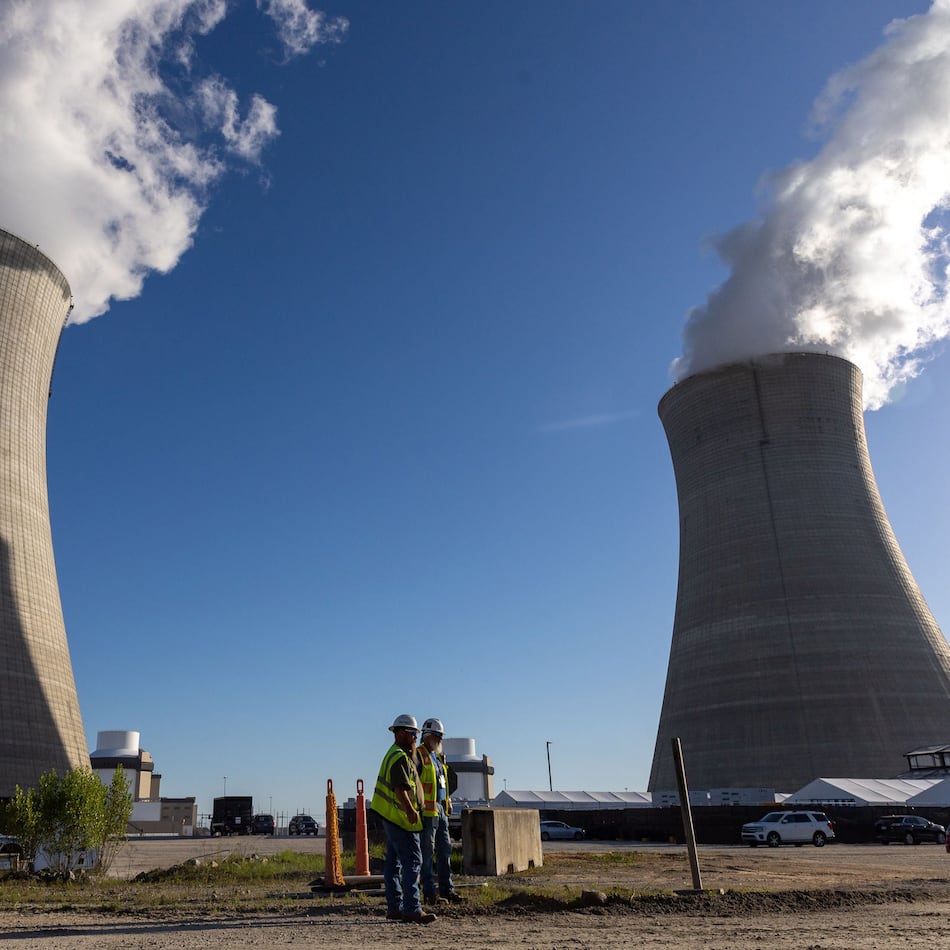Facing blowback from customers over their rising power bills, Georgia Power has reached a deal with the Public Service Commission’s public interest staff to keep its current base electricity rates in place for the next three years.
But the agreement includes notable exceptions that could still lead to bill increases in the coming years, and critics said the move would limit public scrutiny of the ratemaking process — and the utility’s finances.
The tentative deal announced Monday, known as a “stipulated agreement,” means the company will no longer file a request to adjust its rates this summer, as scheduled. The agreement must still be approved by the five members of the PSC, all Republicans.
It’s a rare step and one not seen in Georgia since 2016. The agreement, if approved by the PSC, would allow commissioners to avoid a vote on rates ahead of primary elections in June and general elections in November.
Instead, Georgia Power will keep the base rates that have been in place since the start of this year through 2028.
The move means Georgia Power’s earnings structure — which dictates how much profit it can keep — will also stay intact for now.
Under the framework established by the commission in 2022, the company’s earnings “target” is a 10.5% return on equity. That is higher than the average for U.S. electric utilities, according to data compiled by the market and financial intelligence firm S&P Global.
Georgia Power spokesperson Jacob Hawkins said the agreement balances the “affordability needs of our customers while ensuring Georgia Power remains equipped to continue its support of our state’s incredible growth.”
There is precedent for allowing the company to keep current rates in place. In 1995 and again in 2016, the PSC and Georgia Power reached agreements to keep base rates frozen for three years, according to PSC spokesperson Tom Krause.
But the freeze may not last long.
As soon as next year, the company is expected to ask the PSC to allow it to collect a massive accumulation of storm-related costs from customers over the next few years. As part of the deal, the company agreed to make its ask to recover storm costs between Feb. 1 and July 1 next year.
The largest chunk of Georgia Power’s storm balance comes from Hurricane Helene, which the company has called the most destructive storm in its history. Georgia Power has said it has $830 million in outstanding damage costs from Helene alone.
PSC Chairman Jason Shaw called the agreement a “very big deal,” adding he and other commissioners pushed PSC staff and the company to negotiate.
“This is nothing but good news for Georgia Power ratepayers,” Shaw said in a statement. “I look forward to delving into the details of this agreement as we conduct our public hearings.”
Credit: Elijah Nouvelage
Credit: Elijah Nouvelage
The move comes with Georgia Power and the PSC facing growing pressure from consumer advocates over its residential customers’ rising electricity bills.
Since late 2022, a series of six rate hikes approved by the PSC have pushed the average Georgia Power residential customer’s monthly bill up by about $43, according to data from the company.
Not everyone feels the deal is good for customers or government transparency.
“Make no mistake: Bills for residential and small business customers will rise under this agreement,” said Jennifer Whitfield, a senior attorney with the Southern Environmental Law Center.
Codi Norred, the executive director of Georgia Interfaith Power and Light, also argued forgoing the full rate case proceedings that had been expected this summer allows Georgia Power to keep its accounting books out of public view.
“People should be concerned when decisions about their future are made outside the light of public scrutiny,” Norred said in a statement.
Hawkins, the Georgia Power spokesperson, said the deal is just the start of an “open and transparent process” that will include opportunities for public comment.
The deal comes with seats on the PSC up for grabs for the first time in years. Court battles and new state legislation have delayed elections since 2022.
Two of the PSC commissioners who voted for many of the rate increases — Republican incumbents Tim Echols and Fitz Johnson — will be on the ballot.
Echols, who has held the PSC’s District 2 seat since 2010, faces a challenge from Lee Muns, a former Columbia County Board of Education member, in the Republican primary. The winner will face Democrat Alicia Johnson of Savannah in the November general election.
In the District 3 race, Johnson will face one of the four Democrats vying for the party’s nomination. This will be the first time Johnson, who was handpicked for the District 3 post in 2021 by Gov. Brian Kemp, has faced voters at the ballot box.
The four Democrats battling for a chance to face him in November are: Keisha Sean Waites, a former state representative and former Atlanta City Council member; Peter Hubbard, the chief executive of Georgia Center for Energy Solutions; Robert Jones, who has worked in energy and tech for the government and private companies; and Daniel Blackman, who served as the southern region administrator for the U.S. Environmental Protection Agency under the Biden administration.
Early voting in the June 17 Democratic and Republican primaries begins May 27. The general election for both seats is set for Nov. 4.
About the Author
Keep Reading
The Latest
Featured





